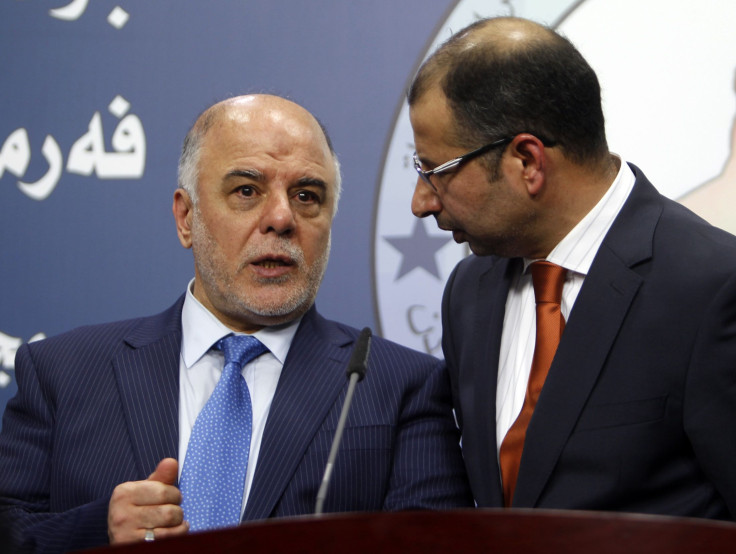Who Is Haider Al-Abadi? Iraq’s New Prime Minister

The Iraqi government is at risk of a major schism this week as now-removed Prime Minister Nouri Al-Maliki refuses to give up his position to Haider Al-Abadi, who was nominated by parliament.
Maliki doesn’t appear ready to step down and has moved troops around Baghdad, including in front of President Fouad Massoum’s residence and in the Green Zone, where government offices are. Crowds have gathered in support of Maliki, but he appears to have the support of only a small fraction of parliament. Just 29 members of the 328-seat legislative body announced their support of him last night.
So who is Al-Abadi, the man who was chosen to inherit a deeply troubled Iraq with a weak government and military, and a major threat from radical Islamists?
Al-Abadi was an engineer prior to getting involved in Iraqi politics after the U.S. invasion in 2003. He lived in London with his family in exile from Saddam Hussein’s government but returned to Iraq to participate in the post-Saddam government.
In late June he told the Huffington Post’s Mehdi Hasan Iraq would "have to be careful not to become involved in a sectarian war. Shias are not against Sunnis and Sunnis are not against Shias,” signaling he supported inclusion of all faiths and sects in the government.
While Al-Abadi plans to replace Maliki, he is actually a senior member of Maliki’s Islamic Dawa Party, a Shiite party that leads the State of Law coalition in the Iraqi government. He was made minister of communications in 2003, after which he became a member of parliament and adviser to then-Prime Minister Ibrahim Al-Jaafari from 2005 to 2006. He’s served as chairman of two committees: the Economy, Investment and Reconstruction Committee and the Finance Committee, the latter of which he’s held since 2011. Most recently he’s been the deputy speaker of the Iraqi parliament.
Despite his close ties with Maliki, Al-Abadi appears to be on board with forming a more inclusive government, a pivot from Maliki who has been criticized by the United States and his own coalition for disrupting the inclusion process.
The U.S. immediately recognized Al-Abadi as prime minister, referring to him by the title in an official readout of a phone call between him and Vice President Joe Biden. Al-Abadi “expressed his intent to move expeditiously to form a broad-based, inclusive government capable of countering the threat of the Islamic State ... and building a better future for Iraqis from all communities,” which hints at the U.S. stance over recent months that a more inclusive government be formed without Maliki.
I call for all political blocks to unite it's political rhetoric in confronting terrorist Daesh attack that our country is facing
- Haider Al-Abadi (@HaiderAlAbadi) August 9, 2014
© Copyright IBTimes 2025. All rights reserved.






















